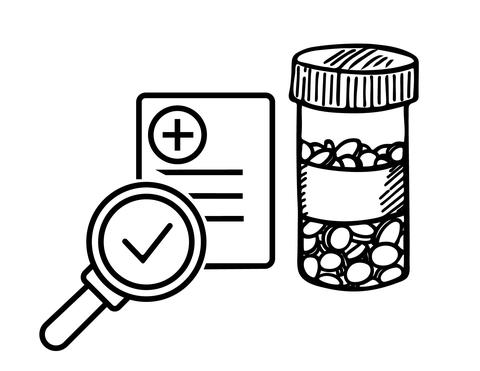Aspirin after completion of standard adjuvant therapy for colorectal cancer
Lancet Gastroenterol Hepatol. 2025;10(3):198-209
In patients with colorectal cancer, aspirin 200 mg daily for 3 years after completion of standard adjuvant therapy was well tolerated but did not significantly improve disease-free survival in a phase 3 trial involving > 1500 patients.
Background: Aspirin is a simple, globally available medication that has been shown to reduce the incidence of colorectal cancer. The aim of this study was to evaluate the safety and efficacy of aspirin in the secondary prevention of colorectal cancer.
Methods: This phase 3, randomised, double-blind, placebo-controlled trial was conducted at 66 centres across 11 countries and territories (10 in Asia-Pacific; 1 in the Middle East). The trial included patients aged 18 years and older with Dukes' C or high-risk Dukes' B colon cancer or Dukes' B or C rectal cancer who had undergone resection and had completed standard adjuvant therapy (at least 3 months of chemotherapy). Patients with contraindications to aspirin, familial syndromes of colorectal cancer, recent other cancers, and clinically significant history of cardiovascular disease or stroke were excluded. Patients were randomly assigned (1:1) to aspirin 200 mg daily or placebo for 3 years, and were followed up for 5 years. Randomisation was stratified by study centre, tumour site and stage, and inclusion of oxaliplatin in adjuvant chemotherapy. The patients, study team, and sponsor were masked to treatment assignment. The primary endpoint was disease-free survival. The primary analysis used a stratified Cox model in those commencing study treatment (modified intention-to-treat population), analysing all events to March 31, 2023. Safety was analysed in the same population. The primary analysis has been completed, but translational studies of putative aspirin sensitivity biomarkers are ongoing.

Findings: Between February 25, 2009, and June 30, 2021, 1587 patients underwent randomisation, of whom 1550 were included in the modified intention-to-treat analysis: 791 (51%) in the aspirin group and 759 (49%) in the placebo group. Of these patients, the median age was 57 years (interquartile range [IQR], 48–65); 897 (58%) were male and 653 (42%) female; 271 (17%) had Dukes' B colon cancer, 770 (50%) Dukes' C colon cancer, and 509 (33%) rectal cancer. Median follow-up at data cutoff was 59.2 months (IQR, 36.7–60.0). 5-year disease-free survival was 77.0% (95% confidence interval [CI]: 73.6–80.0) in the aspirin group and 74.8% (71.3–77.9) in the placebo group (hazard ratio of 0.91 [95% CI: 0.73–1.13]; p = 0.38). Any-grade adverse events were reported in 390 of 791 patients (49%) in the aspirin group versus 386 of 759 (51%) in the placebo group. Serious adverse events were reported in 95 (12%) patients in the aspirin group versus 107 (14%) in the placebo group. There were no treatment-related deaths in either group. Among adverse events of special interest, there were no cases of acute myocardial infarction in the aspirin group versus 2 in the placebo group; no ischaemic cerebrovascular events in the aspirin group versus 2 in the placebo group; and 3 major gastrointestinal bleeds in the aspirin group versus 1 in the placebo group.
Interpretation: In patients with colorectal cancer, aspirin 200 mg daily for 3 years after completion of standard adjuvant therapy was well tolerated but did not significantly improve disease-free survival.